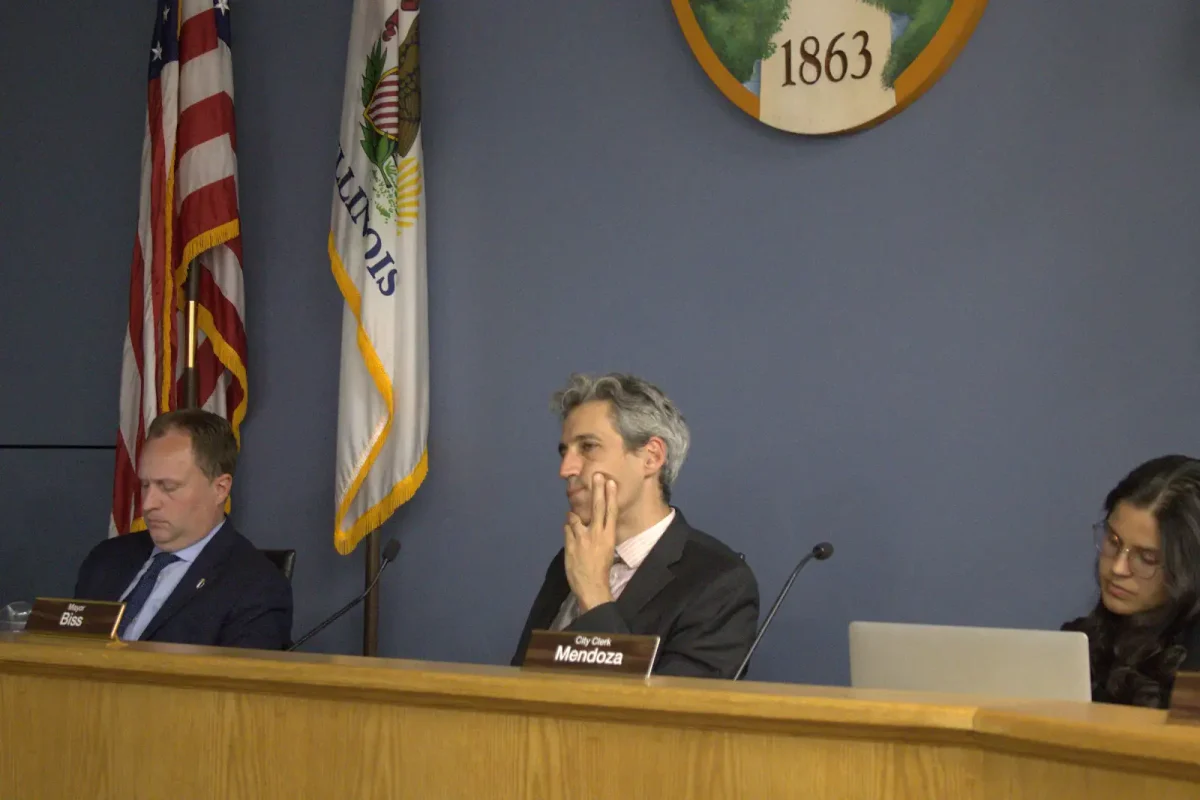Evanston City Council introduced a revised fiscal year 2025 proposed budget Monday night, representing a roughly $3 million decrease in expenses from the previously proposed budget announced Oct. 4.
After committee discussion, a public hearing and several ward meetings, the city’s proposed spending for 2025 fell from roughly $398.9 million to roughly $395.6 million, including interfund transfers. The decrease comes as a result of an accounting error in relation to Northwestern’s Good Neighbor Fund and a decrease in spending on the Capital Improvement Program.
“The changes we’ve made so far are really reflective of the feedback we’ve received at the 10 to 11 meetings to date so far,” Budget Manager Clayton Black said.
The revised proposed budget includes 13 measures to increase revenues in 2025, including passing credit card convenience fees onto consumers, increasing residential parking permit costs, increasing rental fees for parks and facilities and increasing licensing fees for long-term care facilities.
The increased revenue will allow the city to reduce its reliance on reserves to cover its $12.5 million General Fund deficit.
Ald. Clare Kelly (1st) expressed concern that the budget has increased too much in recent years.
“I don’t think we’ve seen enough to really understand and justify such an enormous jump,” she said.
Although the budget increased dramatically between fiscal years 2021 and 2022, the 2025 proposed expenditures are actually $9.3 million less than the figures in the fiscal year 2024 adopted budget.
City Council also introduced a $34.9 million property tax levy to fund city operations. The city’s portion of the property tax levy will remain flat between 2024 and 2025. The levy also provides revenues to local schools and the Evanston Public Library.
Ald. Devon Reid (8th) expressed disapproval that funding for participatory budgeting was again not directly included in the budget.
“We need to have the community’s help in finding new revenue,” Reid said. “I think the PB process is a perfect process for doing that.”
In 2023, the city piloted a participatory budgeting program, which allowed residents to allocate $3 million in American Rescue Plan Act funding to various initiatives.
The city initially funded participatory budgeting in 2021, and the community engagement for the project exceeded expectations. Yet, City Council decided not to fund a participatory budgeting cycle in 2024.
During public comment, Participatory Budgeting Coordinator Celia Carlino introduced three past participants who advocated for the program’s return.
During the meeting, Mayor Daniel Biss also commented on the results of the 2024 presidential election, calling them “fundamentally out of step with the values of this community.” Biss said he plans to protect Evanston residents from President-elect Donald Trump’s policies by coordinating with other municipalities.
“Evanstonians aren’t interested in being bullied,” he said. “I think that is going to come in handy because, as people in our community are coming under threat, they are going to be counting on all of us to stand up and put ourselves on the line to protect them.”
Biss added that Trump’s campaign promises run contrary to the city’s Envision Evanston 2045 initiative, which will overhaul Evanston’s comprehensive plan and zoning code to help the city achieve its climate goals and reform its land use policies.
The Finance and Budget Committee will meet Tuesday afternoon to discuss the 2025 budget before City Council votes on adopting it at its next meeting Nov. 25.
Email: sophiebaker2028@u.northwestern.edu
Email: isaiahsteinberg2027@u.northwestern.edu
X: @IsaiahStei27
Related Stories:
— Evanston proposed 2025 budget down $9.3 million from 2024
— City Council brainstorms revenue streams with looming $12.5 million General Fund deficit
— Q&A: 3rd Ward Ald. Melissa Wynne reflects on 28-year City Council career



















